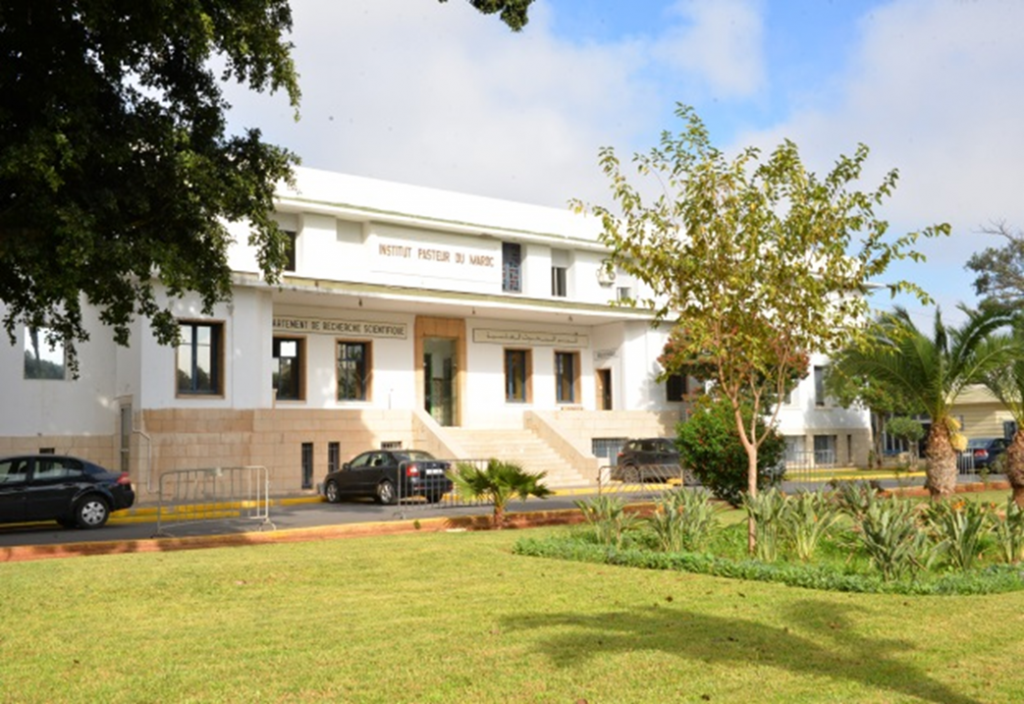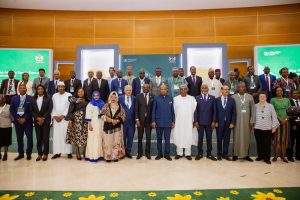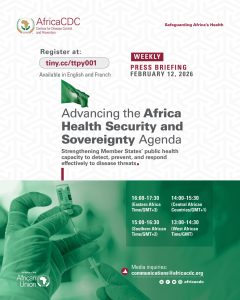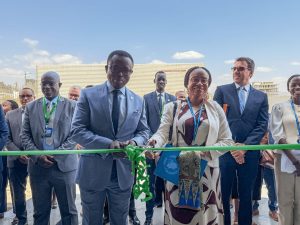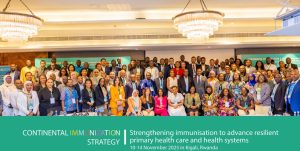The Moroccan consortium, led by Institut Pasteur du Maroc, was appointed co-host of Africa CDC’s North Africa Regional Capacity and Capability Network (RCCN) to advance regional vaccine innovation and sustainable biomanufacturing training across the African continent. Here’s how they are helping build the continent’s vaccine future.

The Mission
The Institut Pasteur of Morocco (IPM) is a public institution dedicated to advancing public health through scientific research, innovation, and training. Its activities revolve around two main areas: public health and the production of pharmaceutical and biological products.
IPM’s mission is to promote and develop scientific research, contribute to the teaching of biological sciences, and meet national needs for vaccines and other biological products, while playing a central role in training in biotechnology, genomics, and virology by implementing specialized programs to enhance the skills of researchers and healthcare professionals.
Additionally, IPM provides expertise, analysis, and advisory services to individuals, businesses and institutions at national, regional, and international levels. Through its commitment to training and innovation, it strengthens its position as a center of excellence in biotechnology and health.
IPM also provides growth opportunities for emerging researchers. Take, for instance, Dr. Ghita Amalou, who specializes in vaccine development. She began her tenure at IPM pursuing a Ph.D. in genomics, majoring in innovative diagnostic technologies. After completing her degree, she joined IPM’s research team, where she focused on advanced biopharmaceutical development. Following Morocco’s successful bid to host the North Africa RCCN in collaboration with Egypt, the RCCN Secretariat appointed her as a staff member for RCCN initiatives.
“Through the RCCN, we are actively engaged in training African talents in vaccine bioproduction, addressing critical skill gaps, and strengthening the continent’s self-reliance in vaccine manufacturing. This initiative directly supports Africa’s goal of achieving vaccine security and reducing health disparities,” said Dr. Khalid Zemzoumi, the coordinator of the Moroccan co-secretariat of the North Africa RCCN.
“The most remarkable moment was witnessing Morocco’s selection as a co-host country for the North Africa RCCN. This recognition validated years of research, collaboration, and institutional efforts to position Morocco as a key player in strengthening vaccine biomanufacturing capabilities in Africa,” added Professor Abderrahmane Maaroufi, IPM’s Director and Chairperson of the Moroccan RCCN.
The Partners
Being part of the early-stage development of this initiative and contributing to its strategic planning has been incredibly rewarding. Professor Maaroufi emphasized that collaboration is at the heart of the RCCN’s mission. Morocco brings together a dynamic consortium of multiple key institutions, each contributing to different aspects of vaccine biomanufacturing and regulatory oversight. This consortium includes:
- Institut Pasteur of Morocco: A public health institute specialized in research and biotechnology
- University Mohammed VI of Health Sciences: Morocco’s first multidisciplinary, health-focused university, committed to academic excellence, research, and innovation.
- University Mohammed VI Polytechnic: Fosters a dynamic learning ecosystem that integrates experimentation, entrepreneurship, and technology
- African Academy of Health Sciences: Headquartered in Dakhla, serves as a premier hub for health education and training
- Marbio: A state-of-the-art fill-and-finish facility for vaccines and biotech products
- Moroccan Agency for Medicine and Health Products: Regulating the safety, quality, and accessibility of health products in Morocco
“Beyond national collaborations, we actively engage with other RCCNs to promote the harmonization of training curricula and ensure a collective effort to address workforce gaps in the continent’s vaccine biomanufacturing sector,” said Dr. Zemzoumi.
“By fostering cross-regional exchanges, co-developing specialized training programs, and sharing best practices, we aim to build a robust network of skilled professionals capable of driving Africa’s vaccine self-sufficiency,” he added.
Opportunities and Overcoming Challenges
As part of the North Africa RCCN, the Moroccan consortium is working closely with Africa CDC and partners to align training programs with continental needs—ensuring that technological advancements, regulatory frameworks, and workforce development strategies are implemented cohesively.
Through strategic partnerships, joint research projects, workshops, and exchange programs, a sustainable ecosystem for vaccine bioproduction workforce development is being created—empowering African nations to collectively advance their manufacturing capabilities.
Despite its successes, IPM faces the need for continuous infrastructure upgrades and capacity-building to support large-scale vaccine bioproduction training for regional and continental talent.
“We overcome these hurdles through strategic partnerships, advocacy for increased investment in biomanufacturing, and by leveraging existing expertise within Africa CDC and international organizations,” said Professor Maaroufi. “Sustained political and financial commitment remains key to overcoming these challenges.”
“Leveraging the strength of the Moroccan consortium, the Institut Pasteur du Maroc aims to position the North Africa RCCN as a regional leader in vaccine bioproduction training and innovation,” he added.
A Continental Vision
Dr. Chiluba Mwila, Senior Technical Advisor for Talent Development at Africa CDC, praised Morocco’s leadership.
“Morocco has cultivated expertise in biomanufacturing over several decades. Having IPM as a co-host of the North Africa RCCN represents an opportunity for other Member States to learn from their experience,” he said. “The continent stands to benefit greatly from IPM and its partners’ infrastructure and capabilities.”
“Being part of the RCCNs is an extraordinary opportunity to contribute to a transformative initiative that will shape Africa’s biopharmaceutical future,” added Dr. Chiluba. “It allows us to share expertise, build strategic partnerships, and directly impact public health by training the next generation of scientists.”
Looking Ahead
A decade ago, the idea of Africa building its own robust vaccine manufacturing ecosystem seemed distant, said Professor Maaroufi. “Today, thanks to initiatives like the RCCN and support from Africa CDC, we are hopeful of witnessing an unprecedented shift. We look forward to Africa becoming a global player in biomanufacturing and biopharmaceutical innovation—with a network of highly skilled professionals driving the continent’s health security agenda,” he concluded.

